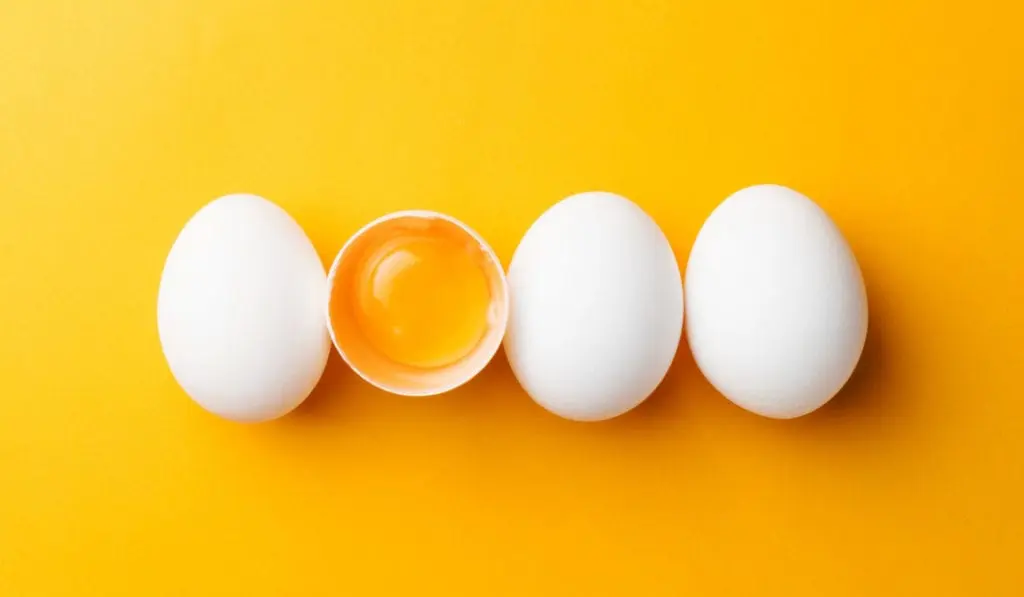Contents
Chicken eggs are an important component of proper nutrition, a source of amino acids, vitamins and minerals. However, they contain cholesterol, a potentially dangerous substance for the cardiovascular system. Excess blood cholesterol is associated with health risks.
How many eggs can you eat per day without harm to health?. Is it really healthier to eat only whites rather than yolks? What will happen to the body if you eat a lot of eggs – risks and possible side effects.
Is it okay to eat eggs every day?

Eggs are one of the most cheap protein sources for athletes. Some athletes are able to eat up to 8 or more chicken eggs per day. Doing that they get 120 grams of protein and up to 4-5 grams of cholesterol. Note that the RDA for this substance is only 300 mg.
In fact, the danger of daily consumption of eggs lies precisely in the high content of cholesterol. Up to 400-500 mg per piece. Despite this, scientists believe that the relationship between the content of cholesterol in food and its level in the blood is ambiguous.
According to studies, for healthy people, the consumption of chicken eggs even in sufficiently large quantities (about 3-4 per day or about 20 per week) does not affect either the total blood cholesterol level in general, or the level of “bad” cholesterol in particular.
Egg diet for weight loss
Despite the name, the egg diet allows you to eat not only eggs. You may also consume a small amounts of vegetables, as well as fruits with a low glycemic index. In fact, the diet is low-carb and is used as a preparatory step for entering ketosis.
It is believed that with an egg diet you can lose 2-4 kg during the first 3-5 days – and without experiencing an acute feeling of hunger. Since the use of eggs rich in protein provides a long-term feeling of fullness. Among the key contraindications are pregnancy and liver disease.
Eggs – harm and danger

Despite the fact that cholesterol from food is only partially converted to cholesterol in the blood, it is often not recommended to eat more than 3-4 eggs per day. When consumed in this amount, approximately one in three people will experience high blood cholesterol levels.
Note that we are talking only about a slight increase in cholestero – plus, both “bad” and “good”. On the other hand, there are no studies on the direct dangers of excessive egg consumption – just like there is no maximum “safe” dose.
How much can you eat on an empty stomach?
The most popular nutritional myths about eggs are that they are healthier to drink raw or that they should be eaten on an empty stomach. In fact, there is no evidence that they are more beneficial when raw – however, health risks can arise from insufficient heat treatment.
In addition, eggs can cause individual food allergies – especially when consumed in large quantities on an empty stomach.
Do eggs have a shelf life?
The standard manufacturer’s recommendation is to consume eggs within 7 days. Because of room temperature storage, eggs will stay fresh for several weeks when refrigerated. After this period, the eggs may turn rotten – especially if there is a thin shell.
How many eggs should athletes eat?

Gaining muscle mass through strength training implies increased protein intake – but only against the background of an overall increase in caloric intake. In other words, the total amount of nutrients in the diet is more important than just a protein diet on eggs and meat.
In addition, when consuming a large number of eggs (more than 3-4 per day), it is recommended to limit the use of yolks – for example, to cook an omelet from several proteins and just one yolk. This will significantly limit the intake of cholesterol, since there is almost no cholesterol in protein.
In turn, excess cholesterol is especially harmful when using anabolic drugs – disrupting the liver. But, as in other cases, there is no unequivocal evidence that eating a large number of eggs is directly harmful to health.
Nutritionist’s recommendation on how many eggs to eat per day or per week – no more than 3-4 whole eggs per day or 20 per week. Possible harm lies in the high content of cholesterol in the yolk – an excessive amount of this substance can increase the level of cholesterol in the blood.










samahani, naomba msaada wa kupata dawa ya kusafisha mishipa ya damu cardioton, naomba msaada.